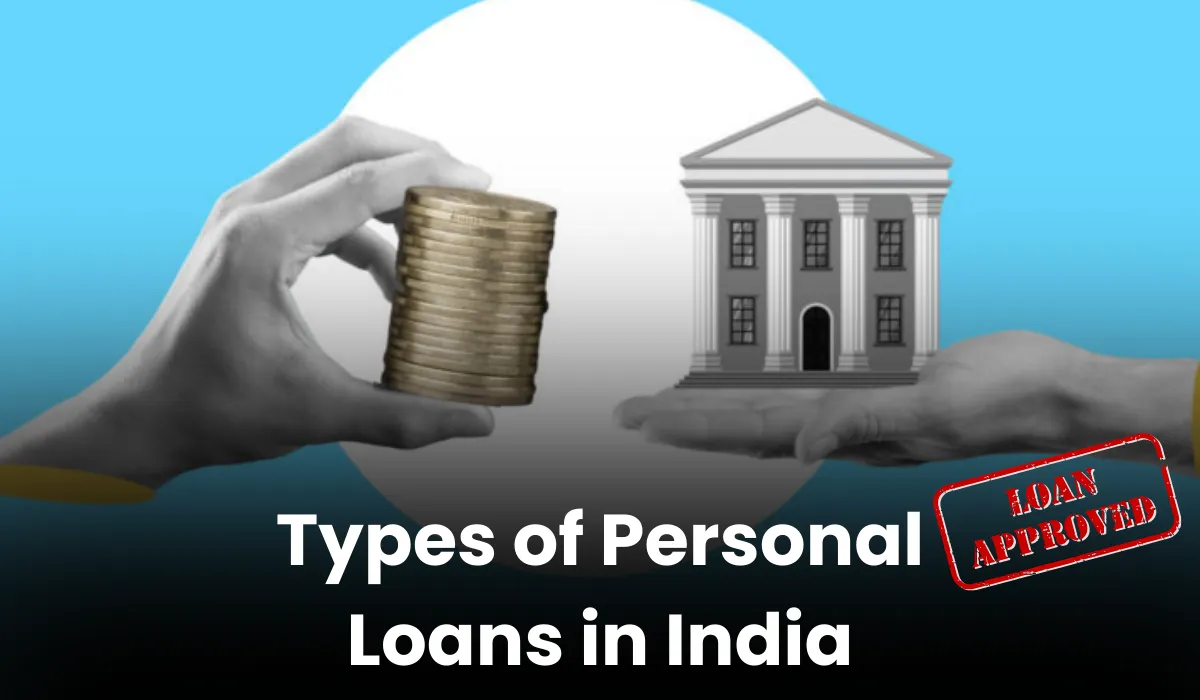Term Insurance | Best Term Insurance
Hello friends, in this Article, we’ll discuss everything about term insurance. Term insurance is also commonly known as life insurance. If I normally explain term insurance, then it’s a very easy concept and can be explained quite easily in just a sentence. But the insurance companies have come out with so many options, such as survival benefits, return of premium, etc.
Term Insurance Overview
then there’s limited pay premium, single pay premium, or pay in one go So, there are many options that have made the simple topic of term insurance quite complicated.
Anyway, in this Article, we’ll discuss all the points, like why it’s important to get a term insurance, and secondly, from where should we get it which company is the best for term insurance.
explain term insurance
explain term insurance in one sentence suppose I wish to get a term insurance of 1 crore, Because God forbid, if something were to happen to me, I want my family to be secure. So, my insurance company would give my family the 1 crore rupees in case something happens to me, naturally or anyhow If something unfortunate were to happen to me, my family would receive 1 crore rupees.
Let’s say I’m 30 years old today and want this to mature when I turn 70. I’m assuming a figure for now; the exact premiums will be in the screenshots that I’ll show and explain later.
So, let’s suppose, my premium is 1K rupees, This means I will pay the insurance company 1,000 rupees per month.
Secure Your Family’s Future: Why Early Term Insurance is a Smart Move
In return, if anything happens to me at any time—whether next month, next year, or even 10, 20, or 30 years from now, or before I turn 70 the insurance company will provide my family with 1 crore rupees. Now, the good thing is that – though I’ve already gotten my term insurance, but the sooner you buy a term plan for yourself, the better.
Suppose, someone at the age of 18 buys a term plan, then they might get one at 400 rupees per premium, which could mature when they turn 70 and get a cover of 1 crore rupees.
If someone gets it at the age of 18, they can get it at 400 rupees a month. through I already have one, but still, if I wish to get it at the age of 30, I’ll show you the exact premiums later on I’d have to pay 1,000 rupees a month to the insurance company.
So, if an 18-year-old applies for it, then they can get a 1-crore-rupee term plan at 400-450 rupees per month.
And if they get it, then till 70 years of age, their premium will still be 400 rupees/month.
This is the best thing about term insurance
This is the best thing about term insurance. No matter if you get it from ICICI or Max – we’ll see all that later on – but the good thing is that if you buy a specific premium at a specific age, like 400 rupees/month, then it’d be a fixed payable amount; the company can’t alter that.
So, this is the best thing about term insurance. Let’s move forward. Now, another question arises that –
let’s take my example – I’m 30 now, Some might suggest getting term insurance until you’re 60, while others might recommend coverage until 65 or 70. Nowadays, some companies even offer coverage up to 99 years of age.
Until what age should I get term insurance?
Ideally, from 65 to 70 years is enough. Suppose, I want to take a term insurance for 1 crore rupees. If God forbid, something happens to me, I want to ensure that my family is not burdened. I have a 2-year-old daughter whose education and future wedding should not be affected.
The purpose of term insurance is to prevent any disruption in the family’s regular expenses. Now, when I turn 65 today my daughter is 2 years old, so down the line after 35 years, my daughter will be 37.
Obviously, she’ll be independent and earning by herself. At that time, even if I’m not around, my family won’t be affected.
So, I need the term insurance till my family is dependent on me. Even when she turns 25 – I’ll be 55 then – well, if not 25, then 26-27, she’ll start earning, as at that age, most people start earning nowadays.
So, even then, if something happens to me, I shouldn’t be worrying, as no one would be dependent on me by then.
So, we should get a term insurance for the period in which your family is dependent upon you. Till the family is dependent on the earner to a certain age, only till then the term insurance should be taken. According to term insurance, suppose I’m paying 1k rupees each month and I’ve taken it until I turn 65.
If something happens to me within this period before I turn 65, then 1 crore will be given to my family. And if I survive beyond 65, then the 1k-premiums that I paid per month would get wasted. Hopefully, those get wasted, no problem with that. So, these are the basic points of term insurance. But it has become quite complicated, about which I’ll talk later.
One important point is age eligibility: you must be at least 18 years old and no older than 65 years if you want to purchase a new term insurance policy.
Now, there are some things that have made term insurance quite complicated. First is the return of premium. I’ll explain that in a minute. Then there’s survival benefit as well.
Then the coverage – it could be till I turn 65 or till I turn 100; someone might think that getting it for 100 years is a good idea, as everyone has to leave the world someday, at least, the family will get 1 crore then.
I’ll explain shortly why you shouldn’t get coverage until 100 years old, but rather until 65.
Well, suppose you’ve taken term insurance and paying 1K per month till my policy matures. But there is a scheme that allows you to make a one-time payment. So, you pay 2-2.5 lakhs – all the premiums at once, and it’ll be covered for 70 years. So, we’ll see whether we should get limited pay or regular pay.
the most important point
Before we discuss all these details, the most important point is where we should obtain term insurance from. We’ve seen what a term insurance is – you’ve to pay a monthly policy for the tenure of the policy. Insurance companies have complicated the rest of the things, which I’ll discuss in a while.
But the most important point is where one should obtain term insurance Some will suggest to see the claim settlement ratio, and some will suggest to see something else all these are nonsense. First, you’ve to check the brand value. Because, I’m 30 now, and I want to get a coverage of 1 crore rupees by the time I’m 70.
Now, say, there’s a company whose claim settlement ratio is 99.9%. But the company doesn’t have an asset under management, nor a brand value. I’m not getting an insurance policy for a month or two. I want the policy to continue for the next 40 years. Suppose, after 10 years, the company with a 99.
9% claim settlement ratio closes down, then what will I do? First, I need to consider the brand value and ensure that the company will be around for the next 40 years. Since I’m getting term insurance now, I want to be sure that if something happens to me, my family will receive the payout. So, the first and most important point is brand value.
When considering brand value, there are 7-8 notable names, including SBI, Tata AIG, Max, and ICICI, among others. If I see the brand value, there might not be 50 options, but even then, there will be 7 to 8 options to choose from, which could be confusing. These companies will not sink, and they’ve good brand value.
Now, who do I select among these? Next, consider the assets under management. Look at which company has the highest number of customers and premiums. Make a list of companies with the highest premiums and assets under management. Now, you would say that even if we do that, 1 or 2 companies will be eliminated, but I would still have 5 or 6 options to choose from, who have good assets under management.
So, the best thing would be to see all of it under one roof at PolicyBazaar. At PolicyBazaar, you will find at least 50 companies under one roof and you can compare them easily. Let me give you an example. If I log in to PolicyBazaar now, I’d see different companies. For example, I wish to compare ICICI, HDFC, and Max.
You can see the ‘compare plans’ option above. I’ll click on ‘compare plan’ and then select the 3 options, and then I can compare every single aspect. Imagine you are confused between another 2 or 3 companies and you can’t decide which one to pick for term insurance. So, use a filter for the 2-3 companies whichever companies you wish to compare, you can do it in one place.
This is the best thing about it. We also get a 10% discount on the online purchase of a policy. There is also a relationship manager available 24/7, and if I need to make a claim on the policy, the process will start within 30 minutes So, there’s a dedicated manager available 24×7. Another good thing is that you get a tax rebate of up to 1.5 lakhs under section 80C.
I’ve provided the PolicyBazaar link in the description box below. Click on it to find the best term insurance for yourself, as both term and health insurance are essential for every family. Now, let’s see what new things the companies have added one by one. The first is the return of premium. Now, let’s take the previous example here.
If someone is 29 years old and wants insurance coverage until they turn 65, with a sum assured of 1 crore rupees I have also put up a screenshot here from PolicyBazaar If he’s taking it from the ICICI, then the monthly premium amount is 1181 rupees. So, he has to pay 1181 rupees per month for 36 years until he is 65.
If something happens during the coverage period, they will receive 1 crore. If nothing happens, the premiums will be forfeited. So, this is the first option. On the second option, they’re offering a return of premium. So, here, they’re saying instead of paying 1181, they are asking you to pay 2358 rupees.
This has to be paid for the next 36 years. Now, if something happens, you get 1 crore. And if nothing happens, then after 36 years, they will give you 10.23 lakhs. Now, why is that? Because you are paying us 2358, which would have been 1181 rupees. But every month, you paid an extra 1177 rupees. So, when the entire term is over, they’ll return this entire extra money to you.
So, why would I choose a return of premium option? I’ll stick with the simpler plan. If something happens, I will get the 1 crore. Instead, I could invest that same 1177 rupees in SIP, which I was paying the company. Let me use the calculator and show you. Let me take an SIP of 1177. Now, at today’s rate, you’re getting 25 to 30%, but let me assume 12%, the minimum.
If I invest for 36 years, by the time I reach age 65, while the company will have paid me 10.23 lakhs, the SIP investment will provide a return of 86 lakhs. So, why should I opt for a return of premium option? That won’t be beneficial at all. Now, let’s move on. The next is the survival benefit. So, I’m 29. I’m taking it up to 65 for 36 years, and the cover is of 1 crore.
The monthly premium is 1181
The monthly premium is 1181. But now here, they are saying instead of 1181, pay 7694. For how long? For the next 36 years. Under normal circumstances, if something happened, you’d have gotten 1 crore. Now, if you live till 65 and the whole premium is paid out. But here, it asks to pay 7694, which is an excess of 6513 every month.
So, if you survive till 65, then instead of 1 crore, they’ll give you 1.22 crore as survival benefit. Now, why should I pay so much extra every month? I’d rather invest the 6513 rupees in SIP. If I invest 6513 rupees in SIP at 12% return, then the money would increase to 4.72 crores anyway. Sorry, it’s 4.70 crores.
So, the thing is, if I survive, they are going to give me 1.22 crores. If I could earn 4.70 crores from it anyway, why would I waste that money on you? Now, the next one is increasing premium. Now, this is something you can try. So, I take a plan of 1 crore rupees. I’m 29, and I get it for 36 years till I turn 65.
he line in 20 years, will a crore have the same value? Will it be enough for the family then? Now, what happens in increasing premiums is that Just to clarify, the screenshot is from HDFC.
don’t get confused- HDFC’s premiums are a bit higher
Don’t let the numbers fool you. Although HDFC may have slightly higher premiums, this is how they are broken down: If you enroll in a term plan at age 29, it typically has a premium of ₹1,332 and lasts until you are 65, with ₹1 crore in coverage.
The sum assured under a rising premium plan will increase by 10% annually. This implies that your coverage will rise to ₹1.10 crores after the first period. The amount guaranteed will increase by 10% a year for the following five years.
The greatest amount that it may reach is 1.7 crores. However, the monthly premium for that would be 1588 rupees. You can therefore pursue this plan if you so choose. If not, it would be advisable to go straight for the 1.7 crore rupee plan. It is yours to keep until you are 65. Now that I’ve laid out the specifics, it’s up to you.
Another item at this point is coverage for a century. Currently, some people are swayed by the polished conversation of insurance brokers. Thus, the monthly ICICI premium would be $1,181 if I were to start taking it at age 29 and continue for 36 years, until I am 65. Nowadays, a small percentage of people will argue that choosing 100 years is preferable to 65 years.
Everyone has to be gone one day, at least the family will get 1 crore rupees then. But if I get it till the age of 100 years, the premium will be 2788 rupees instead of 1181. But I would say that 1181 is better. There’s no problem till 65 years. No matter if I opt for 65 years or 100 years, 1 crore will still be Why should I pay an extra 1605 rupees to the company unnecessarily? Instead of giving the extra 1605 rupees to the company, I can start an SIP. So, if you start a SIP at this age, the amount will grow to 1.17 crores after 36 years So, even if I’m alive at 65 the 1 crore would have been given in case something happened to me, and it’d have been given to my family.
So, if I start a SIP, then at the age of 65, I’d get 1.17 crore anyway. So, I’ve to keep in mind that I should get a term insurance till my family is dependent on me. So, the premium is 1181 rupees, I’m 29 now, and the policy’s tenure is 35 years. So, the first option is to pay 1181 rupees monthly until the age of 65.
The second option is to pay in one go
The second option is to pay in one go. Here, it says that we can pay 2.64 lakhs in a single installment and you’ll be covered for 1 crore rupees till you turn 65. The third option is limited pay. Here, you’ve to pay for 5 years, 1 installment of 60k in each year. So, the total amount would be of 3 lakhs, and you’d be covered till you turn 65.
Now, it’s up to you. You can pay monthly, in one go, or in 5 years. A lot of intellectuals will suggest not to pay in one go, rather invest the money in the market why pay the company in 5 years when you can invest in the market Their logic is that since the amount of premium is fixed, then it’s better to pay monthly.
But I think it depends on your own opinion. Some would say that tracking the monthly deduction is rather inconvenient tracking the deduction, see whether any installment has been missed or not; if one installment gets missed and the 15-day grace period also passes and something happens within that period, the benefits of the policy may be curtailed.
So, it’s your choice – you can pay in one go or in 5 years, that’s up to you. Analytically speaking, the monthly one is a bit cheaper. But if you choose monthly payment, then I’d suggest opting for a plan where you only need to make payments once a year So, don’t pay 1181, rather pay 1181×12.
At least pay one year’s total premium at once, so that you don’t have to worry about the monthly deduction. So, check that out. Another point is that which diseases should be mentioned. If you’re buying a term plan today, then you can’t hide any fact. You’ve to mention everything – including whether you consume alcohol or are a smoker.
But if someone who buys term insurance today who doesn’t smoke or consume alcohol, but starts to do that after 2 years of getting the policy, then it has to be mentioned to the company. Don’t hide anything. Otherwise, if something happens, the family might not get the claim. Another point is if someone’s annual income is 10 lakhs, then what’s the maximum limit of term insurance they can get? It depends on the age.
If one’s age is 18 to 35 years, then they can avail 25 times of their annual income as coverage. But ideally, 20 or 15 times is enough. 15 times of your annual income is enough for a term plan. One drawback of term insurance is that it requires a minimum 3 years of ITR, whether you’re self-employed or salaried.
The grace period is of 15 days.
3 years of ITR is mandatory without it, you can’t buy a term plan. The grace period is of 15 days. There are some things that are commonly excluded in case of any of these, you can’t claim the insurance. For example, if someone indulges in life-threatening activities, like paragliding or bungee jumping, and passes away in an accident during those activities, then the claim won’t be accepted.
Claims will not be accepted for deaths resulting from maternity-related complications In war-related activities, like if someone’s an army personnel or even a civilian in some countries, it’s compulsory for civilians to take part in the army so if a civilian takes part in war, and something happens to them, then no benefit of the term plan will be given.







